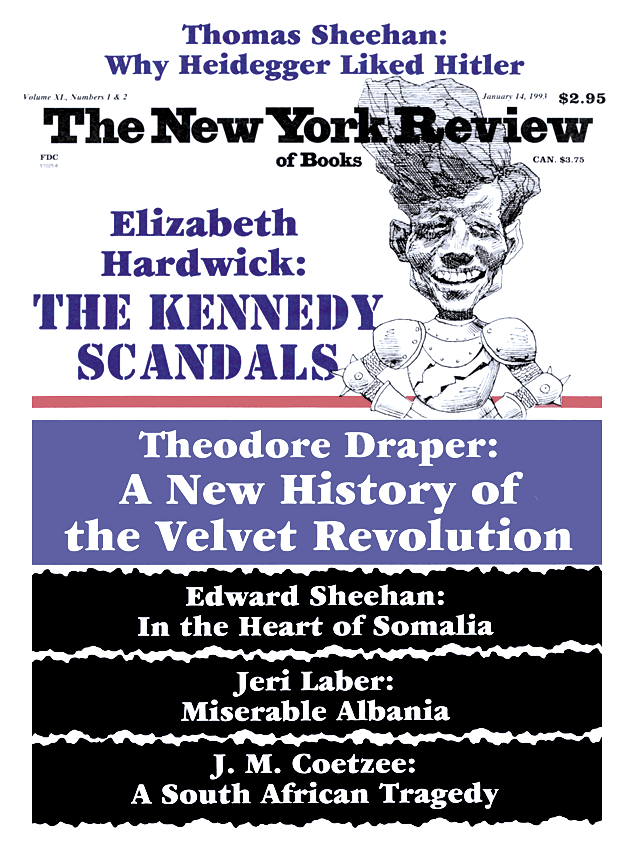In response to:
Not So Free At Last from the October 22, 1992 issue
To the Editors:
Abraham Brumberg’s “Not So Free At Last” will fill a serious void in the reading list of my students of ethnic relations in the former USSR. Thorough, informative and unbiased, Brumberg’s tour d’horizon of contemporary Ukraine is particularly successful in conveying to the reader a strong sense of historical continuity. At a time when the fragmentation of the political scene in Eastern Europe discourages analytical efforts on a large scale, the broadness and complexity of the essay are a rare treat.
The author’s focus on Ukrainian nationalism is perfectly legitimate as is his distrust of the drive toward “Ukrainization” in a multiethnic society. It should be pointed out, however, that in comparison with the aggressive promotion of national culture in other successor states, the policy of Ukrainization is quite moderate. To be sure, the proximity between the Ukrainian and Russian languages, the fact that millions of Ukrainians prefer to speak Russian and also that there are so many Russians (say in the Don basin or Odessa) who hardly know any Ukrainian dictate more caution and circumspection. Still, it is hard to resist the impression that the Ukrainian leaders—prompted, as they have been, by Rukh—have consistently opted against any policy that would carry the potential for turning non-Ukrainian-speakers into second class citizens.
Unlike in Latvia and Estonia, the requirements for citizenship in Ukraine do not impose heavy burdens on any nationality residing in the republic. No mainstream political party is advocating the massive exodus of non-indigenous groups as is the case in some Baltic and Central Asian states. Despite opposition from nationalists, broad minority rights have been promised to Hungarians of Transcarpatia and Romanians of Bukovina. And although, as Brumberg notes, antisemitic articles in the press are on the rise, and although grass-roots anti-semitism remains a serious problem, Rukh’s support for Jewish efforts to rebuild communal life has continued under Kravchuk. Nor have organizations such as the Russian Pamyat or distinctly antisemitic journals such as Moscow’s Nash sovremennik emerged in Ukraine.
Brumberg is certainly right in claiming that Ukrainian politicians are seriously remiss in failing to help the Crimean Tatars resettle in their historical homeland. He is also right in predicting more difficult times ahead for Ukrainian moderates, as the pressure from extreme nationalists grows stronger.
Dr. Magdalena Opalski
Institute of Soviet and East European Studies
Carleton University
Ottawa, Canada
This Issue
January 14, 1993


